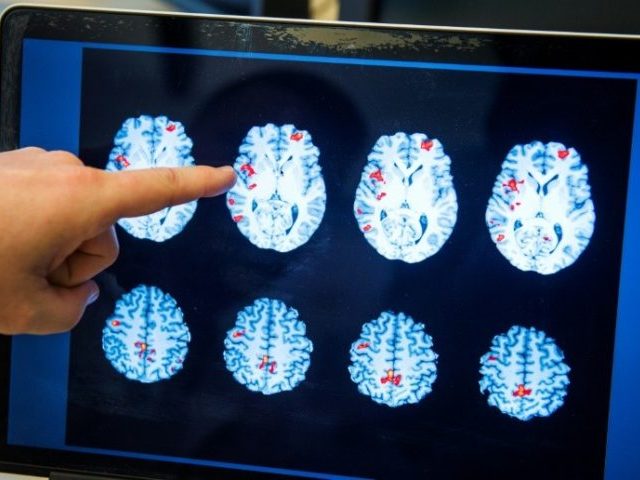A team of scientists at Carnegie Mellon University has created an algorithm that can detect suicidal thoughts or tendencies in people by analyzing their brain scans.
In a study published in Nature Communications, the team wrote that by observing the neural activity of adults while they thought about certain groups of words, the algorithm could detect whether someone had experienced suicidal thoughts with an accuracy rating of 91 percent and whether they had previously attempted suicide with 94 percent accuracy. Marcel Just, the author of the study, said that while the program was not 100 percent perfect, it would still be “nice to have this additional method” of diagnosis.
The participants in the survey were 34 adults, split half and half as to whether they experience suicidal thoughts. Each of them was asked to think about the meaning of groups of words which were either positive, negative, or related to death, while undergoing a brain scan known as a fMRI.
The responses to six of the words (‘death,’ ‘trouble,’ ‘carefree,’ ‘praise,’ ‘good,’ and ‘beauty’) showed the largest differences between the two groups of people. Scientists then fed these results into a machine learning algorithm, and asked it to identify which group they belonged to. The algorithm managed to sort the study participants with remarkable accuracy.
Blake Richards, a neuroscientist at the University of Toronto, expressed doubt about the validity and usefulness of the research, arguing that the results are interesting, but only show correlation, not causation:
There is undoubtedly a biological basis for whether someone is going to commit suicide… There’s a biological basis for every aspect of our mental lives, but the question is whether the biological basis for these things are sufficiently accessible by fMRI to really develop a reliable test that you could use in a clinical setting
The small number of participants was a flaw admitted by Just himself, but he believes that in the future, the algorithm could certainly diagnose suicidal thoughts, and would want to experiment more with it to improve its accuracy.
Just’s previous work, which was published in June of this year, involved an A.I. using brain scans to create and analyze complex sentences, effectively teaching it how to read minds. A sentence such as “the witness shouted during the trial,” was broken down into features such as setting, size, person and physical interaction, and was then able to be reconstructed from the fMRI scans at an accuracy rate of 87 percent.
Jack Hadfield is a student at the University of Warwick and a regular contributor to Breitbart Tech. You can like his page on Facebook and follow him on Twitter @JackHadders or on Gab @JH.

COMMENTS
Please let us know if you're having issues with commenting.